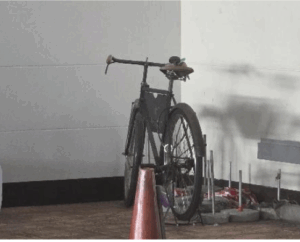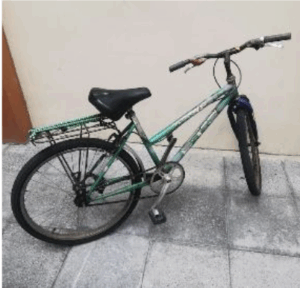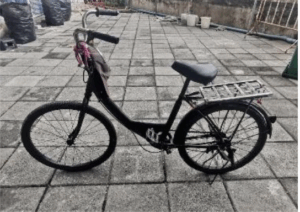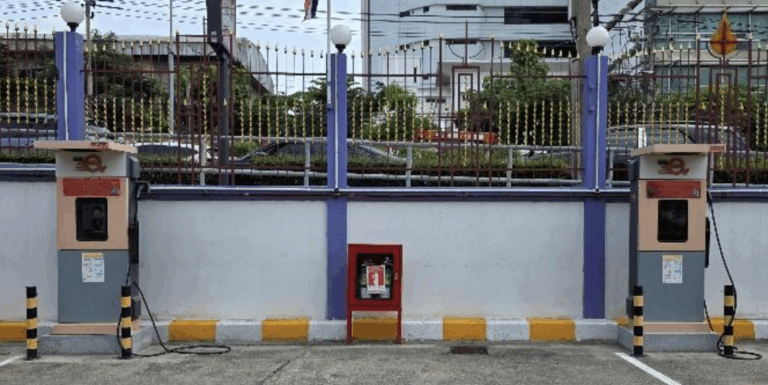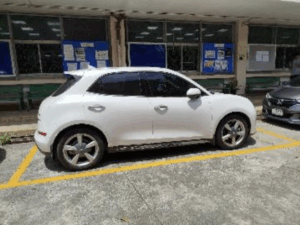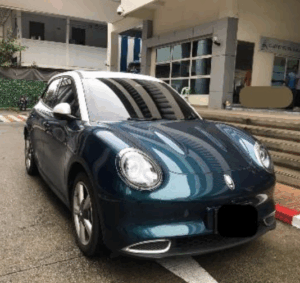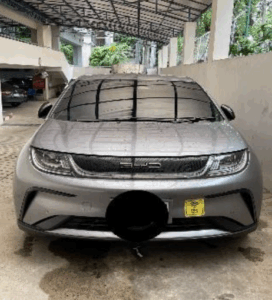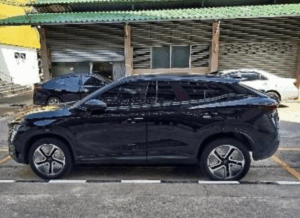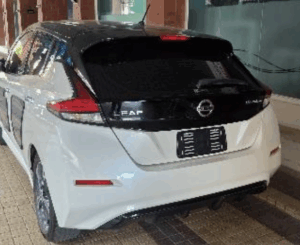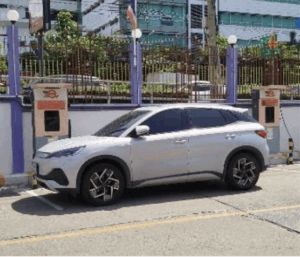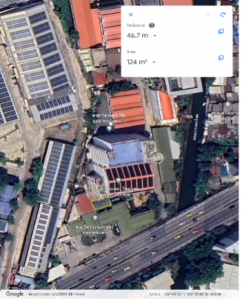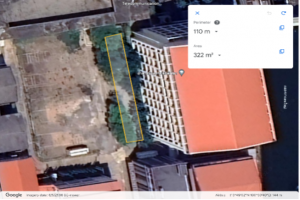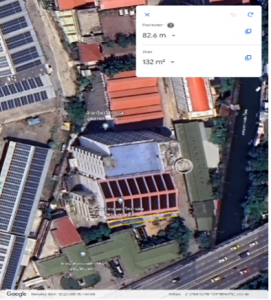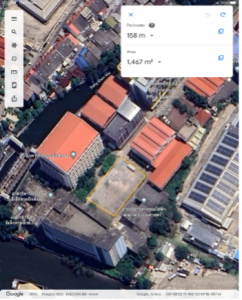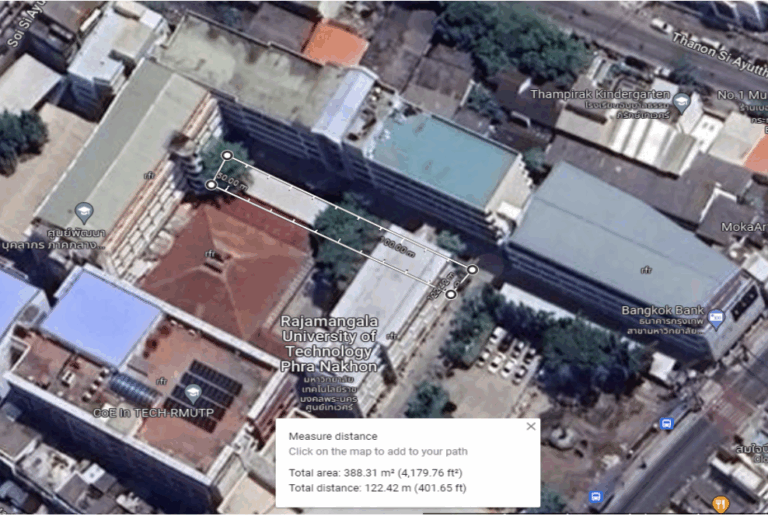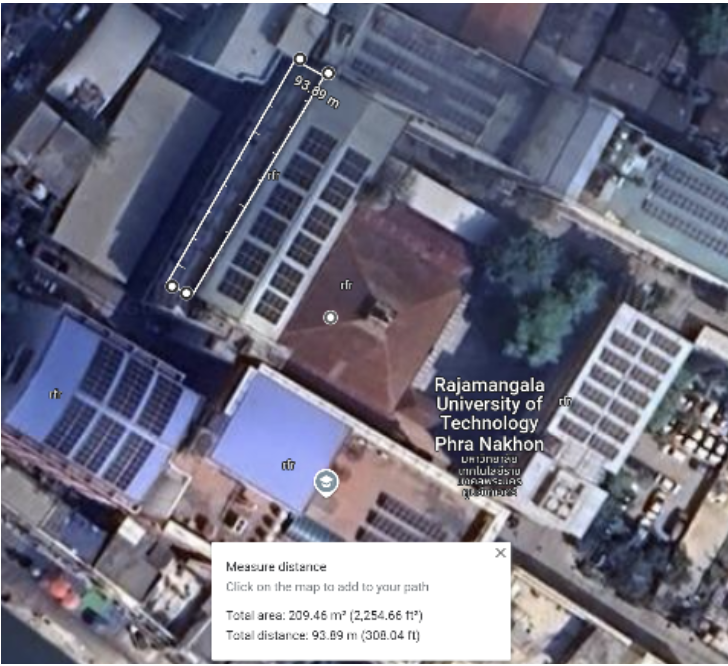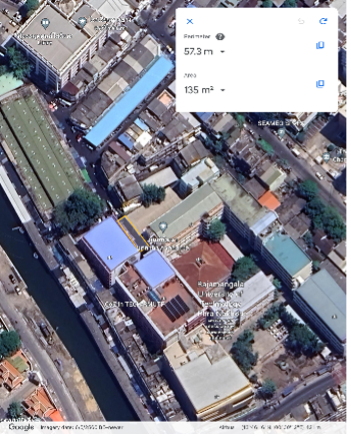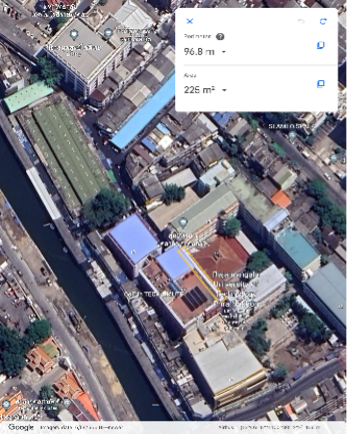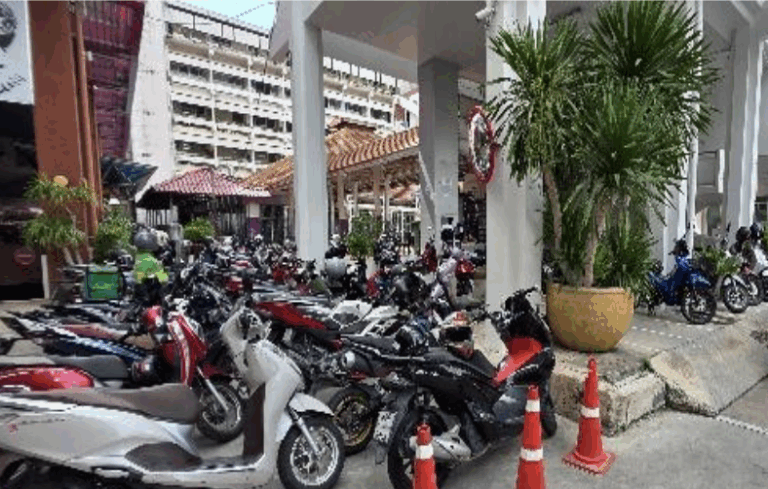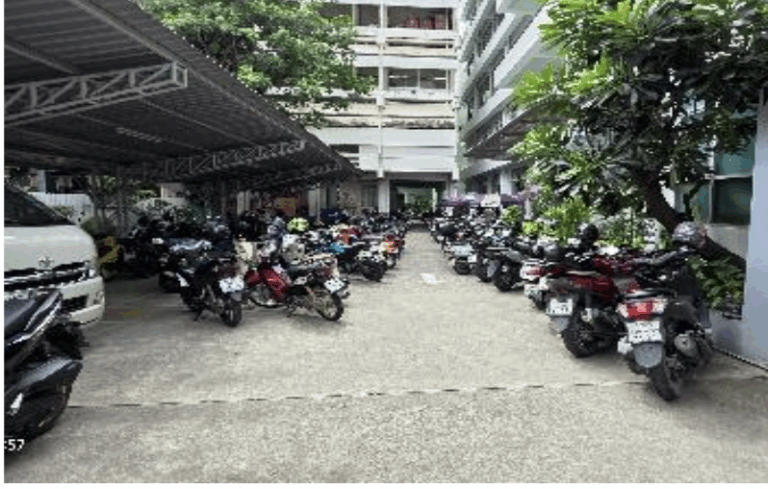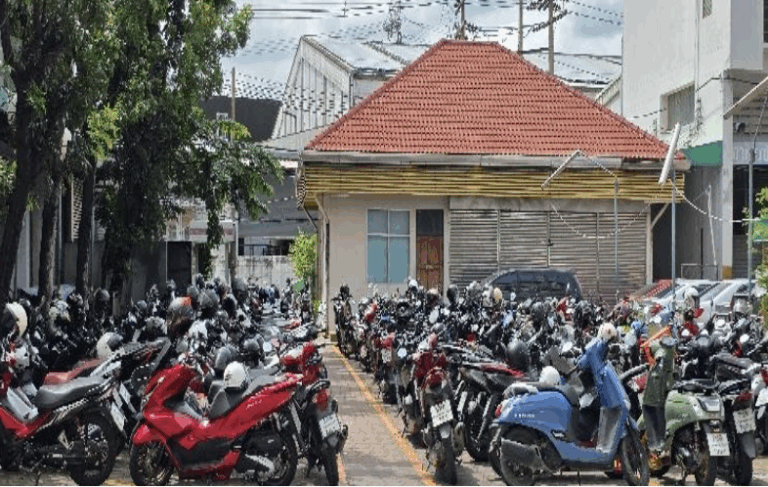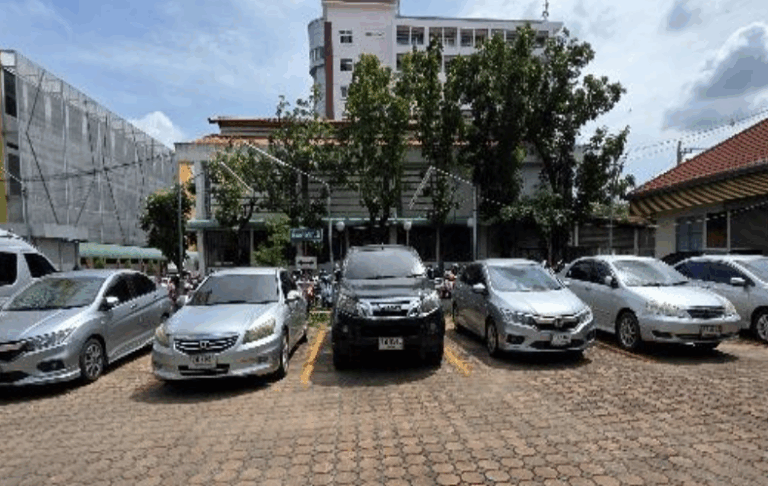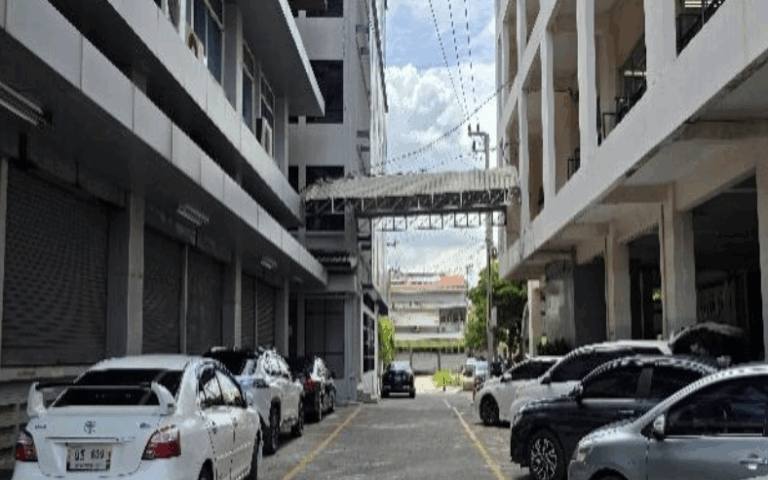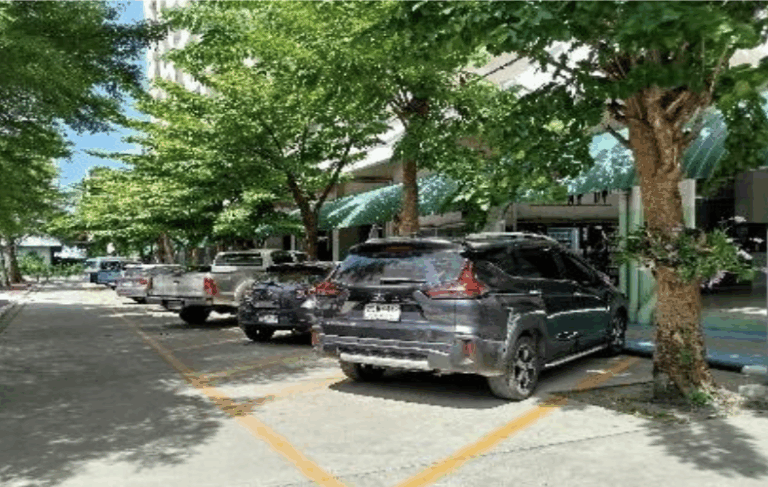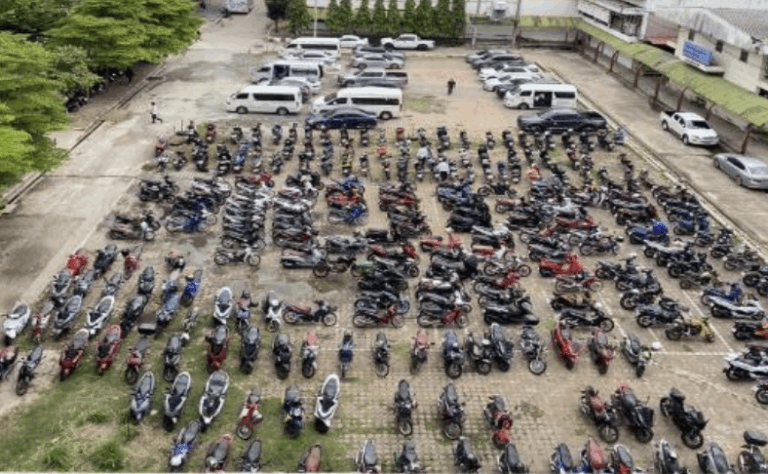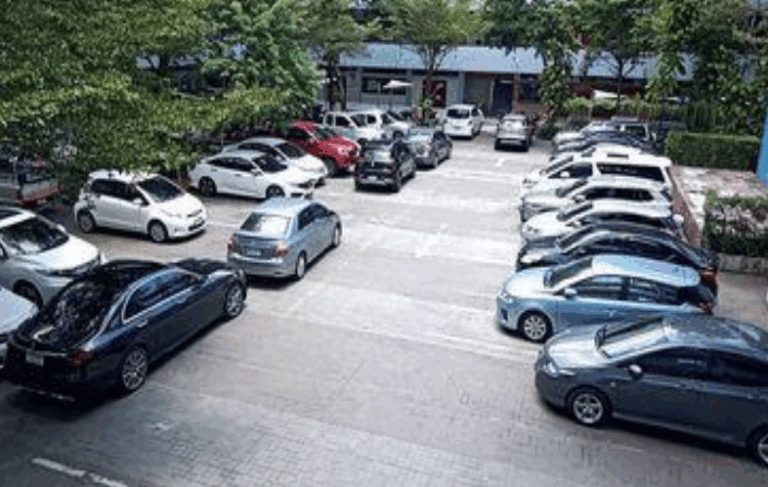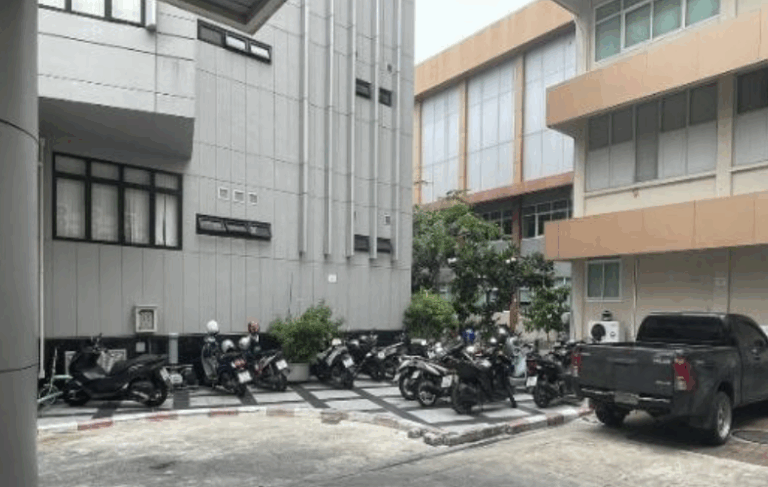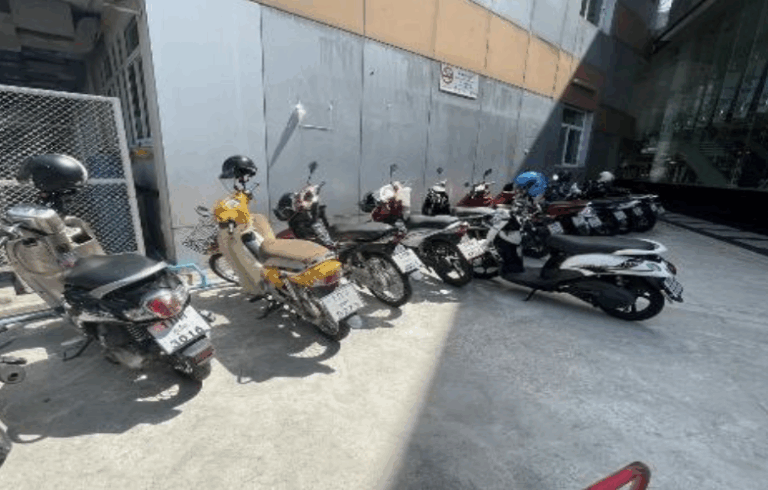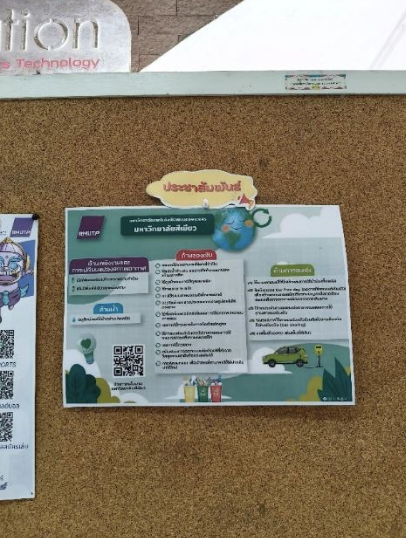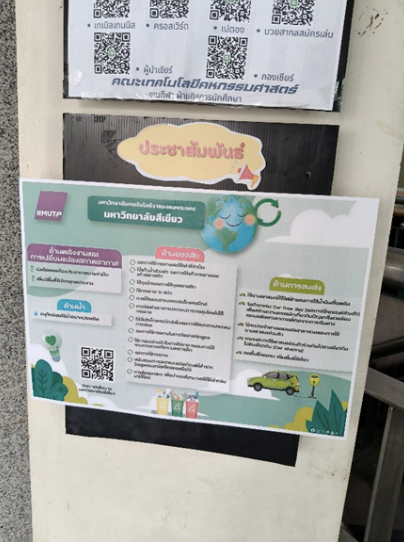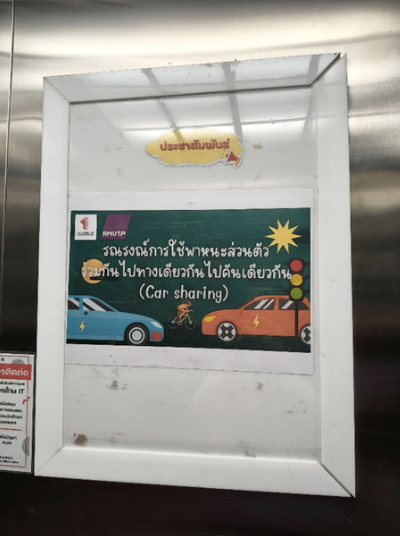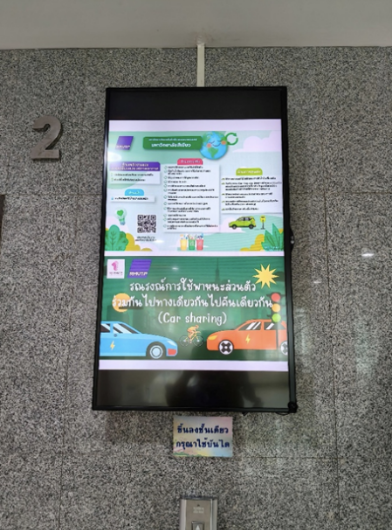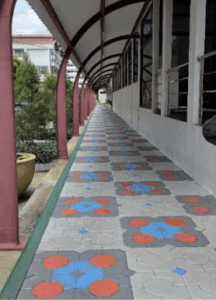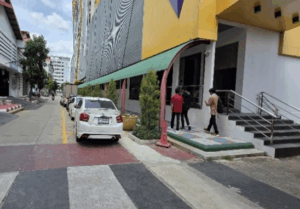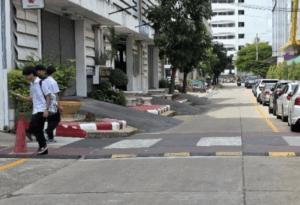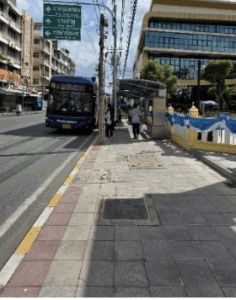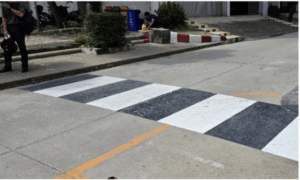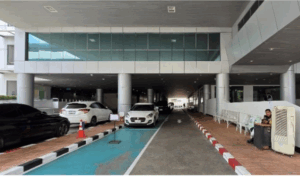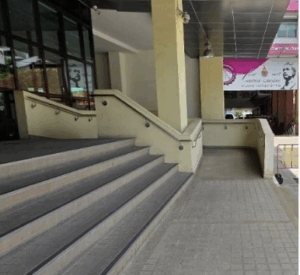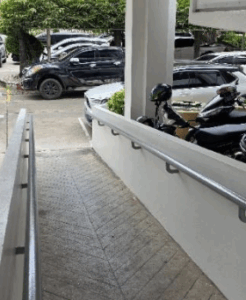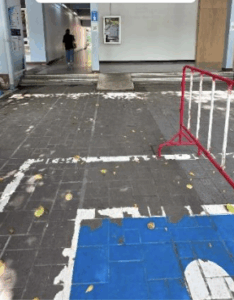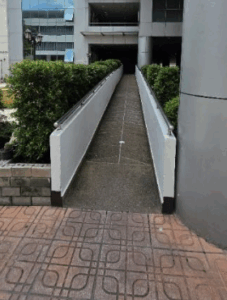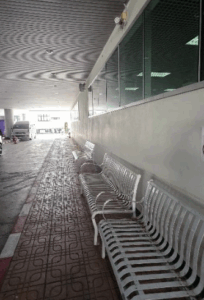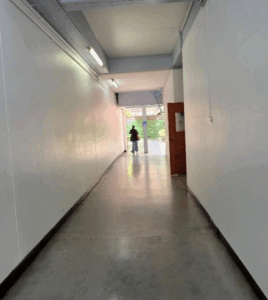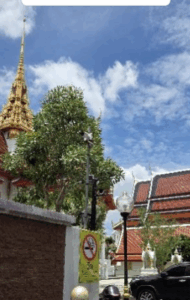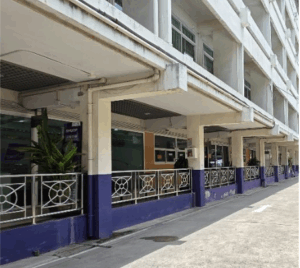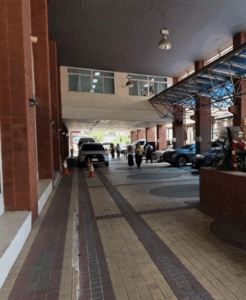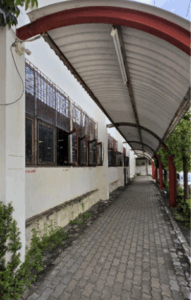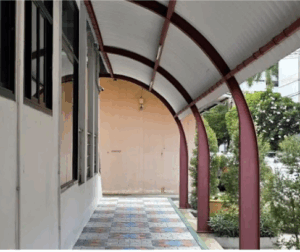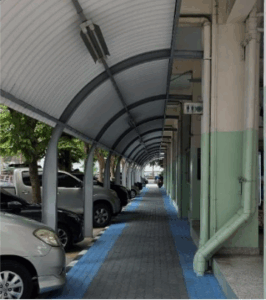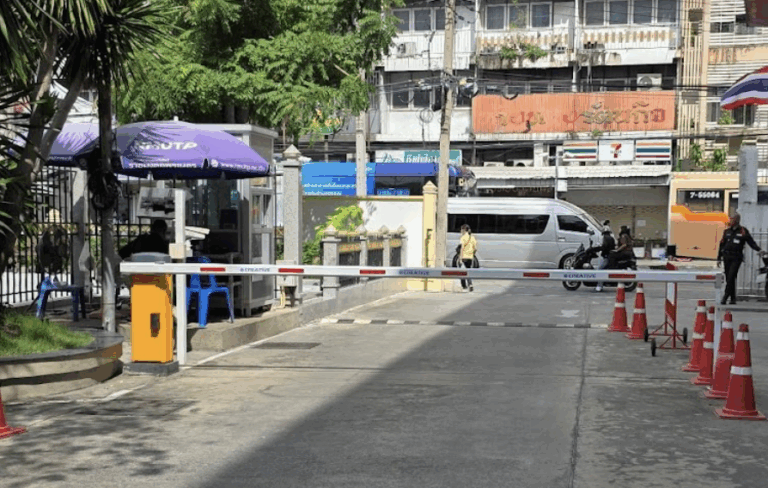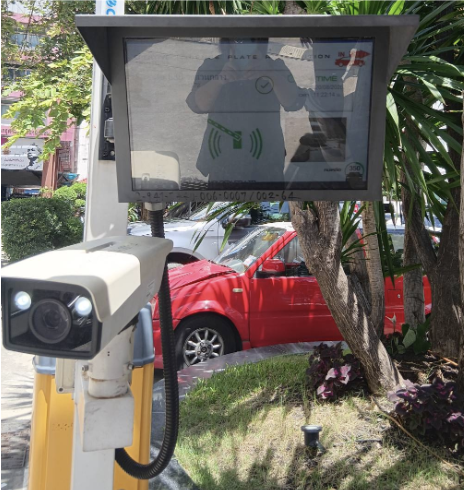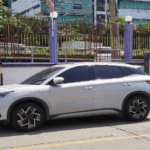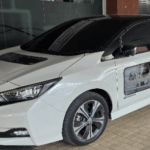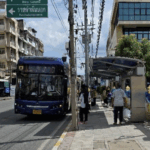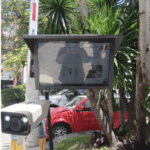Transportation (TR)
Table of contents
The total number of vehicles (cars and motorcycles) divided by total campus population
| No. | Vehicle | Total Number |
| 1 | Car managed by the university | 42 |
| 2 | Cars entering the university | 708 |
| 3 | Motorcycles entering the university | 1,289 |
| Total | 2,039 |
| Classification | Population (person) |
| Regular students | 11,379 |
| Academic and administrative staff | 1,150 |
| Total | 12,529 |
Description:
The total number of vehicles (cars and motorcycles) divided by total campus population = 2,039 / 12,529 = 0.16
Additional evidence link (i.e., for videos, more images, or other files that are not included in this file):
https://green.rmutp.ac.th/sustainability-report/
Shuttle services
Description:
Rajamangala University of Technology Phra Nakhon (RMUTP) does not operate an internal shuttle service due to the compact layout of its campuses and their strategic locations within central Bangkok. The campuses are designed to be easily navigable on foot, with short walking distances between buildings and facilities.
Moreover, RMUTP benefits from excellent access to public transportation infrastructure, including buses, trains (BTS/MRT), and other transit options. These allow students, faculty, and staff to conveniently travel to and from campus, reducing the need for university-operated shuttle systems and encouraging the use of low-emission public transport.
Additional evidence link (i.e., for videos, more images, or other files that are not included in this file):
https://green.rmutp.ac.th/sustainability-report/
Description:
Rajamangala University of Technology Phra Nakhon (RMUTP) is committed to advancing environmental sustainability through the implementation of a Zero-Emission Vehicle (ZEV) policy. This initiative aligns with the university’s green objectives and contributes to the reduction of air pollution and carbon emissions within the campus.
- Promotion of Non-Motorized Transportation
To minimize the reliance on fossil fuels and encourage healthy, low-impact mobility, RMUTP actively promotes the use of non-motorized transportation modes such as bicycles.
- Designated Bicycle Parking Areas: Sufficient and secure bicycle parking facilities are provided across the campus.
- Support Infrastructure: Bicycle users benefit from well-connected paths and easy access to campus buildings.
- Support for Electric Vehicles (EVs)
Recognizing the importance of transitioning to clean energy vehicles, RMUTP has implemented multiple support systems for EV usage:
- EV Charging Stations: Charging points for electric vehicles have been strategically installed in accessible campus locations to encourage the shift from conventional vehicles to EVs.
Additional evidence link (i.e., for videos, more images, or other files that are not included in this file):
https://green.rmutp.ac.th/sustainability-report/
The total number of Zero-Emission Vehicles (ZEV) divided by the total campus population (TR.4)
| Campus | Average number of Zero-Emission Vehicles (ZEV) on campus per day |
| Bangkok Commercial | 7 |
| Chotiwet | 1 | North Bangkok | 3 | Thewet | 14 |
| Total | 25 |
Description:

The total number of Zero-Emission Vehicles (ZEV) divided by the total campus population : 0.002
Additional evidence link (i.e., for videos, more images, or other files that are not included in this file):
https://green.rmutp.ac.th/sustainability-report/
The ratio of the ground parking area to total campus area
Ground parking for faculty of business administration
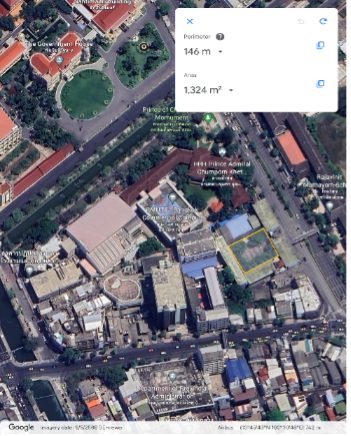
Ground parking area for faculty of engineering
Ground parking area for faculty of Liberal Arts
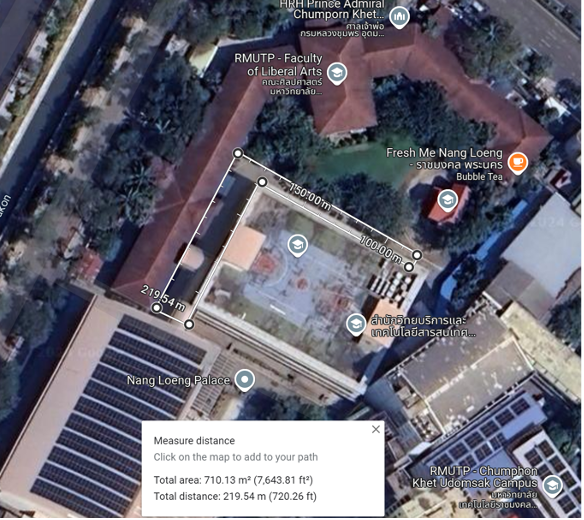
Parking area for faculty of science and technology

Ground parking for faculty of mass communication technology
Ground parking for department of administration
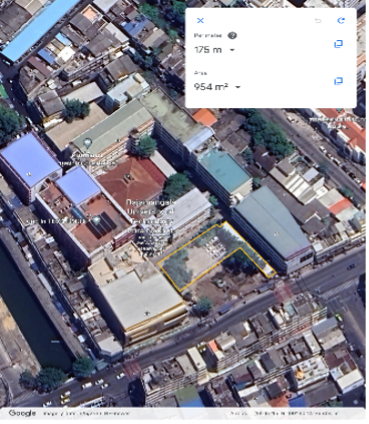
Ground parking for faculty of industrial education
Ground parking for faculty of home economics technology
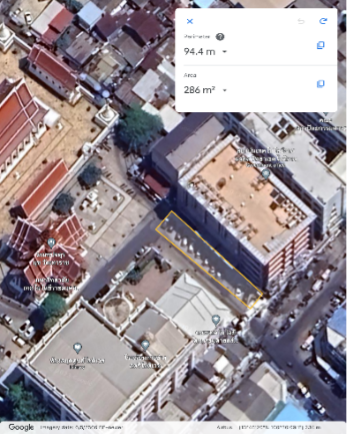
The parking area of RMUTP and ratio of parking area to total campus area shown as below.
| Sites | Total ground parking area (m2) |
| Bangkok Commercial campus | |
| Faculty of Business Administration | 1,324.00 |
| Faculty of Liberal Arts | 219.54 |
| Chotiwet campus | |
| Faculty of Home Economics technology | 286.00 |
| North Bangkok campus | |
| Faculty of Engineering | 2,045.00 |
| Faculty of Science and Technology | 759.00 |
| Thewet campus | |
| Administration | 954.00 |
| Faculty of Industrial Education | 360.00 |
| Faculty of Mass Communication Technology | 482.20 |
| Total | 6,429.74 |

Program to limit or decrease the parking area on campus for the last 3 years (from 2021 to 2023)
Reduce the parking area to its limit
Description:
Over the past three years, Rajamangala University of Technology Phra Nakhon (RMUTP) has actively pursued strategies to limit and reduce on-campus parking spaces as part of its commitment to sustainable urban mobility and environmental responsibility.
Due to the university’s central location in Bangkok—where public transportation options are abundant—RMUTP has gradually reduced vehicle parking areas to the maximum extent feasible.
Additional evidence link (i.e., for videos, more images, or other files that are not included in this file):
https://green.rmutp.ac.th/sustainability-report/
Number of Transportation Initiatives to Decrease Private Vehicles on Campus
Description:
Rajamangala University of Technology Phra Nakhon (RMUTP) has actively implemented transportation policies aimed at reducing the use of private vehicles on campus. Over the past three years, the university has strategically reduced on-campus parking spaces to the maximum practical extent, thereby reaching the threshold of further reduction without disrupting essential operations.
This parking space limitation is part of a broader commitment to environmental sustainability and urban traffic decongestion. Key initiatives include:
- Restriction of Student Vehicle Access: Students are not permitted to bring private vehicles onto campus, significantly reducing traffic volume and the need for extensive parking infrastructure.
- Reserved Parking Zones: Available parking areas are exclusively allocated to faculty, staff, and authorized visitors, further discouraging unnecessary private vehicle use.
- Promotion of Public and Alternative Transportation: RMUTP encourages the use of public transport, bicycles, and walking. Additionally, the university has initiated a Car Sharing Program to promote more efficient use of vehicles among staff and faculty. This initiative aims to reduce the number of vehicles entering the campus while fostering a culture of shared responsibility for the environment.
With the current physical constraints of the university’s campuses—particularly in dense urban areas like Thewet and Chotiwet—the parking area cannot be further decreased without compromising accessibility and operational efficiency.
Additional evidence link (i.e., for videos, more images, or other files that are not included in this file):
https://bus.rmutp.ac.th/ui-green-metric/
https://green.rmutp.ac.th/sustainability-report/
Pedestrian Path Policy on Campus
Pedestrian paths crosswalk and separate from road
Disabled-friendly features
Street ramps and CCTV
Description:
Rajamangala University of Technology Phra Nakhon (RMUTP) has implemented a well-structured Pedestrian Path Policy to ensure safety, accessibility, and convenience for all individuals on campus, especially persons with disabilities. The policy aligns with RMUTP’s broader commitment to inclusive infrastructure and sustainable mobility.
- Clear Separation from Vehicular Roads
Pedestrian walkways across all campuses are physically separated from motor vehicle lanes, significantly reducing the risk of pedestrian-vehicle conflicts. This promotes a safer and more comfortable walking environment for students, faculty, staff, and visitors.
- Inclusive and Accessible Design
The policy integrates universal design principles to support people with special needs, such as: Universal Ramps: Ramps are installed between buildings and along primary walkways, ensuring accessibility for wheelchair users and those with limited mobility.
Accessible Crosswalks: Strategically placed, these crosswalks feature proper slopes, non-slip surfaces, and barrier-free access, supporting smooth navigation for everyone.
- Enhanced Safety Measures
Street Lighting: Adequate lighting along pedestrian paths ensures visibility after dark, reducing risks associated with low-light conditions.
CCTV Surveillance: A network of surveillance cameras is installed throughout pedestrian areas to monitor movement and enable rapid emergency response if needed.
- User-Centric Pathway Layout
Follow the natural campus landscape, enhancing aesthetic value. Connect key academic and administrative buildings efficiently, shortening walking distances and easing navigation for daily users and first-time visitors alike.
Additional evidence link (i.e., for videos, more images, or other files that are not included in this file):
https://green.rmutp.ac.th/sustainability-report/
Planning, implementation, monitoring and/or evaluation of all programs related to Transportation through the utilization of Information and Communication Technology (ICT)
| Stage | Activities/Programs | ICT Utilization | Evidence | Timeline | Responsible Team/Department |
| Planning | Develop a smart parking control system using License Plate Recognition (LPR) technology. | – LPR Technology to automatically capture and digitize vehicle license plates. – Database System to store license data, permissions, violations. | – Feasibility study report – System requirements & design documents | Jan 2023 – Feb 2023 | Administration Department, Security Office |
| Implementation | Install LPR cameras and integrate with campus security and facility systems. | – Hardware: LPR cameras at all key parking entry/exit points. – Integration Software: Middleware to connect with existing systems. | – Installation reports – Integration & configuration test results | Mar 2023- Current | Administration Department, Security Office |
| Monitoring | Monitor performance, effectiveness, and real-time status of campus parking operations. | – Real-Time Dashboard to track parking availability and violations. – Performance Metrics: Accuracy, uptime, incident response time. | -Daily/weekly system reports | Ongoing | Administration Department, Security Office |
| Evaluation | Assess the effectiveness of the license plate recognition system and propose adjustments or expansions. | – Data Analysis Tools to evaluate system usage and parking behavior trends. – User Surveys to gather feedback from campus users. | – Evaluation reports – User satisfaction survey results – Recommendations for improvement | Annually | Administration Department, Security Office |
License plate recognition system
Description:
RMUTP’s ICT-driven transportation initiative has significantly optimized campus parking management while promoting sustainability and operational efficiency. The integration of LPR technology serves as a model for smart university infrastructure development.
- Planning Phase
RMUTP began by conducting a comprehensive feasibility study to assess the need for improved parking management. The planning phase included:
- Strategic assessment of traffic patterns and parking demand.
- Designing a database management system to store license plate data, parking permissions, and violation records.
- LPR technology was selected to automatically capture vehicle license plates at entry and exit points.
- Implementation Phase
The implementation phase involved:
- Installing LPR cameras and hardware at key campus locations.
- Developing and launching an application interface to track parking availability and violations in real time.
- Integrating LPR data with the campus security and facilities management systems to enhance operational control.
- Monitoring Phase
To ensure optimal functionality, RMUTP developed a real-time dashboard to monitor the LPR system:
- Tracks parking space occupancy and violations
- Measures system performance metrics such as uptime and accuracy
- Enables dynamic parking allocation based on real-time usage
- System Impact and Continuous Improvement
Although the formal evaluation step has been removed, RMUTP remains committed to:
- Using data analytics for internal reviews
- Gathering user feedback informally through campus engagement to identify improvement areas
- Enhancing policy enforcement and user experience with ICT-based automation
Additional evidence link (i.e., for videos, more images, or other files that are not included in this file):
https://green.rmutp.ac.th/sustainability-report/
Impact of Transportation programs in supporting the Sustainable Development Goals (SDGs)
Description:
Rajamangala University of Technology Phra Nakhon (RMUTP) has implemented a series of transportation initiatives aimed at promoting sustainable mobility, reducing environmental impact, and supporting the university’s commitment to the Sustainable Development Goals (SDGs). These efforts are aligned with global sustainability principles and local community needs.
- Promotion of Zero-Emission Vehicles (ZEV)
- EV Charging Stations have been installed at various campus locations to support the use of electric vehicles by faculty, staff, and students, promoting clean energy alternatives (SDG 7, SDG 13).
- Non-Motorized and Shared Transportation
- RMUTP actively encourages bicycle usage by providing bicycle parking areas and safe cycling paths. The university also promotes walking through its integrated pedestrian pathway system, designed for safety and accessibility (SDG 3, SDG 11).
- A car-sharing policy has been introduced to reduce individual car use, helping to lower emissions and campus traffic congestion (SDG 13).
- Parking Policy for Demand Reduction
- RMUTP has reduced parking spaces on campus to limit the use of personal vehicles and encourage public transportation or shared mobility options (SDG 11, SDG 13)
- ICT Integration for Traffic Management
- The university is implementing License Plate Recognition (LPR) technology to manage vehicle entry and monitor parking, improving traffic control and reducing unauthorized access (SDG 9).
- Strategic Location and Public Transit Connectivity
- Located in the heart of Bangkok, RMUTP benefits from excellent access to public transportation, enabling staff and students to travel to campus using buses, BTS, MRT, and other services. This integration supports inclusive and efficient urban mobility (SDG 4, SDG 11).
- Awareness and Community Engagement
- The university organizes campaigns and activities to promote environmentally friendly travel behavior and raise awareness of the impact of transportation on climate change (SDG 13, SDG 17).
- Educational Initiatives on EV Technology
- RMUTP integrates electric vehicle (EV) education into relevant academic programs and research initiatives. Students have opportunities to study EV systems, battery technology, and sustainable mobility solutions as part of their coursework and projects. This promotes innovation and capacity building aligned with SDG 4 (Quality Education) and SDG 9 (Industry, Innovation and Infrastructure).

